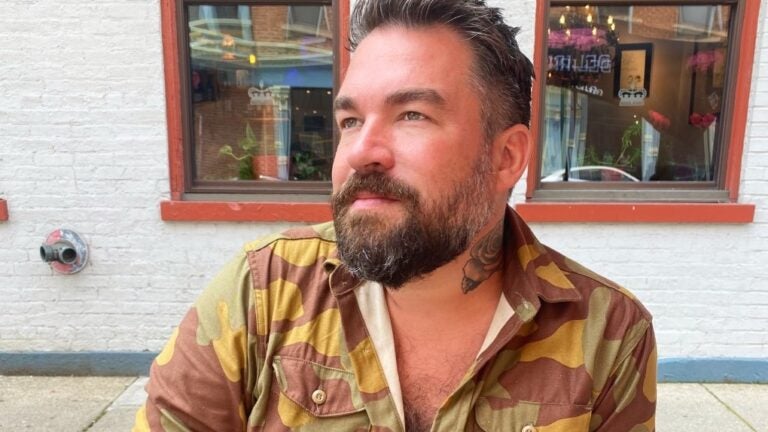

“I learned that these things - her sadness, his anger - were mine as well,” Fitzgerald writes. His father, after rejoining the family, beat Fitzgerald in the shower. “I just stared at the glistening blacktop, wishing the waves were real and the water below so deep it could swallow up the entire car, taking us along with it.”

“I didn’t react,” he writes, after describing heat rippling off the road. At one point, she wondered aloud if she should have aborted him.

In her despair Fitzgerald’s mother used young Isaac as a sounding board, openly threatening self-harm and recklessly oversharing. His father, who stayed behind for work, began another not-so-secret affair in the city. When the author and his mother moved to North Central Massachusetts, next door to his judgmental grandmother, things went south. “I was poor but cared for nobody told me I was supposed to be miserable,” he writes. But it’s a time he nonetheless remembers fondly. Fitzgerald learned bar tricks from guys in soup kitchens and tagged along to his mother’s cathedral job, leading to at least one close call with a priest. The family spent Fitzgerald’s early years in Boston’s South End, where they lived in a halfway house run by the Catholic Worker while his mother did admin for Cardinal Bernard Francis Law - described as having “one of those big slabby Boston faces,” an image that had this Boston resident laughing in recognition.

His parents stayed together, but the union was wracked by emotional and financial strain. In 12 linked essays, Fitzgerald tracks his coming of age from his early years in Boston and the depressed town of Athol, Massachusetts - “a hill town surrounded by river towns, all of them now emptied of hill people and river people” - to a scholarship ride through boarding school, to his adventures in biker bars and queer artistic spaces in San Francisco and New York City, where he began to find his tribe. This negotiation between received “truths” and capital-T Truth is the work of every memoir, one could argue, but Fitzgerald’s project of openhearted self-interrogation still feels refreshing in a culture where men are socialized to bury their pain, or worse, turn it back on the world as misplaced resentment. “I WAS BORN of sin,” writes Isaac Fitzgerald, “a mistake in human form, a bomb aimed perfectly to blow up both my parents’ lives.” The product of a fling between two restless, bookish, devoutly Catholic divinity students who were already married, “just to different people,” Fitzgerald internalized his origin story as shameful transgression.įitzgerald’s debut memoir, Dirtbag, Massachusetts: A Confessional, is about stories he inherited and sometimes invented, stories he dodged or clung to or performed, often in self-destructive ways, until he began to confront himself.


 0 kommentar(er)
0 kommentar(er)
